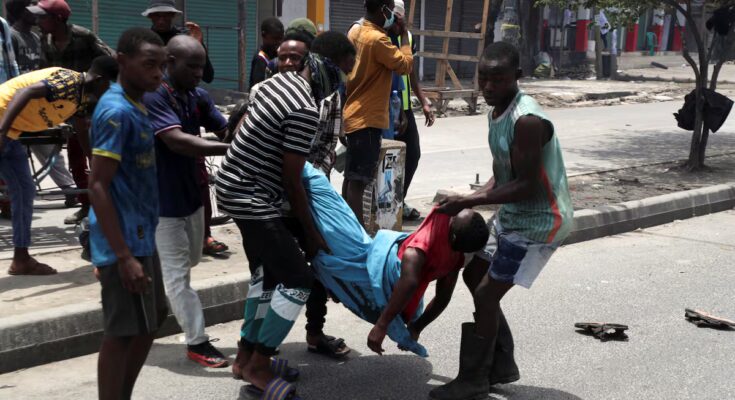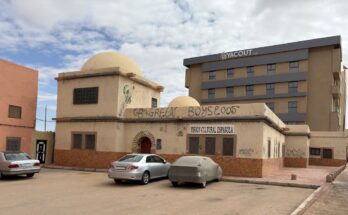The Tanzanian Prosecutor’s Office has charged 98 people with the crime of treason for their alleged participation in the massive anti-election protests that took place on October 29 and which prompted a violent police response that left hundreds dead – at least a thousand, according to the opposition. The demonstrators were protesting against the exclusion of the two main opposition leaders from the aforementioned elections, one of whom was jailed. Days later, President Samia Suluhu Hassan was proclaimed the winner with 98% of the vote and 87% turnout. The African Union (AU) assures that there has been fraud and questions these results, which the opposition has defined as “a mockery”.
According to court documents seen by Reuters, the Tanzanian Prosecutor’s Office argued in the first instance court in Dar es Salaam, the country’s economic capital, that the defendants “intended to disrupt the 2025 general elections with the aim of intimidating the government” and causing damage to state property. There are no public figures among the defendants.
Benson Bagonza, bishop of the Evangelical Lutheran Church in Tanzania, assured that this accusation will only aggravate the tension. “The only option the government has to maintain at least relative peace is to show solidarity with the people instead of arresting and trying them,” he told Reuters.
The government maintains its version that the protests were encouraged by criminals, some of them foreigners, seeking to destabilize the country; and refuses to provide numbers of people killed or injured. But protests are growing, both inside and outside the country, against the elections considered rigged and against the lethal violence used by the police.
This Friday, seven Tanzanian civil organizations led by the Legal and Human Rights Center (LHRC) denounced “excessive use of force against unarmed protesters,” as well as “retaliatory killings of civilians after the elections, some in their own homes.”
Although the protests occurred more than a week ago, hundreds of families are still searching for their loved ones. Amos Ntobi, secretary of the main opposition party, Chadema, assured France Press that hundreds of people had been killed in the northern region of Mwanza alone.
“We saw people killed in broad daylight. There were bodies in every street, some died instantly, others were seriously injured,” he said. Ntobi added that he himself had attended nine funerals, two of them for children aged nine and 11, both of whom were killed near their homes.
On November 5, after Samia Suluhu took office, the AU Election Observation Mission made public its report, which stated that minimum democratic standards had not been met during the elections. The 72 observers sent by the AU were able to verify episodes that called into question the integrity of the entire process: stuffing of votes in the ballot boxes, excessive use of force against demonstrators, internet blackouts during and after the elections, arbitrary arrests of opponents… The government rejected these accusations and assured that the elections were held in a free and regular manner.
In the months preceding the elections, the two main opposition leaders, Tundu Lissu, leader of Chadema, and Luhaga Mpina, of the Wazalendo party, were excluded from the elections. The former was jailed, accused of treason, after his party refused to sign a code of good conduct and Lissu called for reform of the electoral system. Mpina, for his part, was excluded due to a technicality in his candidacy. Without both rivals at the polls, Samia Suluhu had no significant opponent to face him and this was one of the main reasons given by demonstrators for taking to the streets to protest on election day.
After a decade as vice president, Suluhu Hassan became president of Tanzania in 2021 following the death of her predecessor in office, John Magufuli. Although he initially showed himself to be reformist, opening a dialogue with the opposition, freeing political prisoners and allowing the return of exiles, as the elections approached Suluhu turned once again towards the authoritarianism and repression that characterize the Chama Cha Mapinduzi (CCM), the party in power in Tanzania since its creation in 1977. In recent months, the deterioration of the political climate had been aggravated by the disappearance of activists and opponents.



